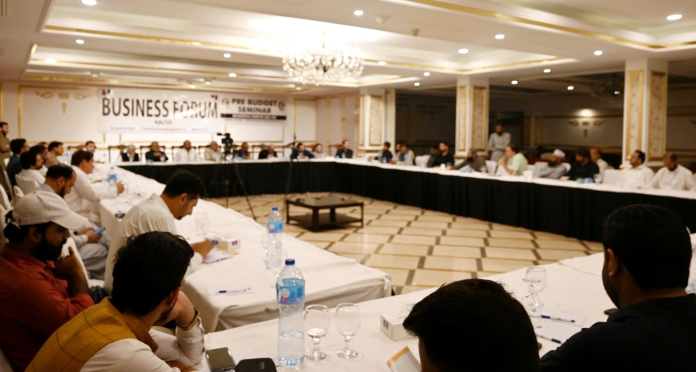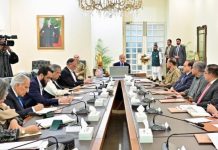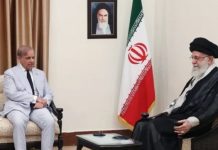ISLAMABAD, MAY 29 (DNA): Leading economic experts, business leaders, and civil society representatives at a high-level pre-budget seminar organized by the Business Forum of Azad Jammu & Kashmir and Gilgit-Baltistan (BFAJK/GB) strongly called for a paradigm shift towards an export-oriented economic model and the immediate establishment of a scheduled bank in Azad Jammu & Kashmir to accelerate self-reliant growth.
Participants stressed that continued dependence on subsidies and grants is unsustainable and that a robust institutional framework—especially a dedicated financial institution—is essential for catalyzing private sector development and enhancing regional exports.
The event, held at a local hotel in Islamabad, marked a milestone in participatory budget consultation for the region. In his keynote address, Chaudhry Qasim Majeed, Minister for Mangla Dam Affairs in the AJK Government, disclosed that the upcoming budget will prioritize five transformative sectors: education, health, agriculture, tourism, and information technology.
“These sectors hold the key to reshaping AJK’s economic future,” he noted, while commending the Business Forum for establishing the practice of soliciting stakeholder input through pre-budget consultations. He assured that the Forum’s recommendations will be given serious consideration.

Imran Aziz, President of BFAJK&GB, emphasized the Forum’s commitment to developing a business-friendly and self-sustaining economy. “We engage stakeholders from across sectors to ensure that the government’s budget reflects grassroots aspirations and practical priorities,” he stated. Sardar Hassan Ibrahim, President of JKPP and Member of the AJK Legislative Assembly, reiterated the need to drastically reduce recurring expenditures, pointing out that development budgets have historically remained below 20%. Former AJK Minister Farzana Yaqoob advocated for promoting tourism, agriculture, and herbal medicine industries in AJK. She also urged a halt to the export of raw materials, which, she argued, depletes local resources without delivering fair economic returns.
Former Additional Chief Secretary Dr. Asif Shah made a compelling case for establishing a scheduled AJK bank, highlighting its potential to unlock credit flows, support entrepreneurship, and enable sustainable
economic growth across sectors. Senior Vice Chairman of the Pakistan Gemstone and Minerals Association (PGMA), Farukh Alvi pointed to AJK’s rich reserves in the gemstone sector and expressed readiness to partner with the government to provide technical expertise and build export market chains.
Other speakers, including Dr. Abdul Rauf (University of AJK), Raja Shafiq (Read Foundation), and business leaders Atif Kiani, Abid Rasheed, and Tahir Yunus, advocated for the development of indigenous
resources, greater digital integration, and incentive schemes to attract overseas Kashmiri investment in local industries, agriculture, and infrastructure.

















